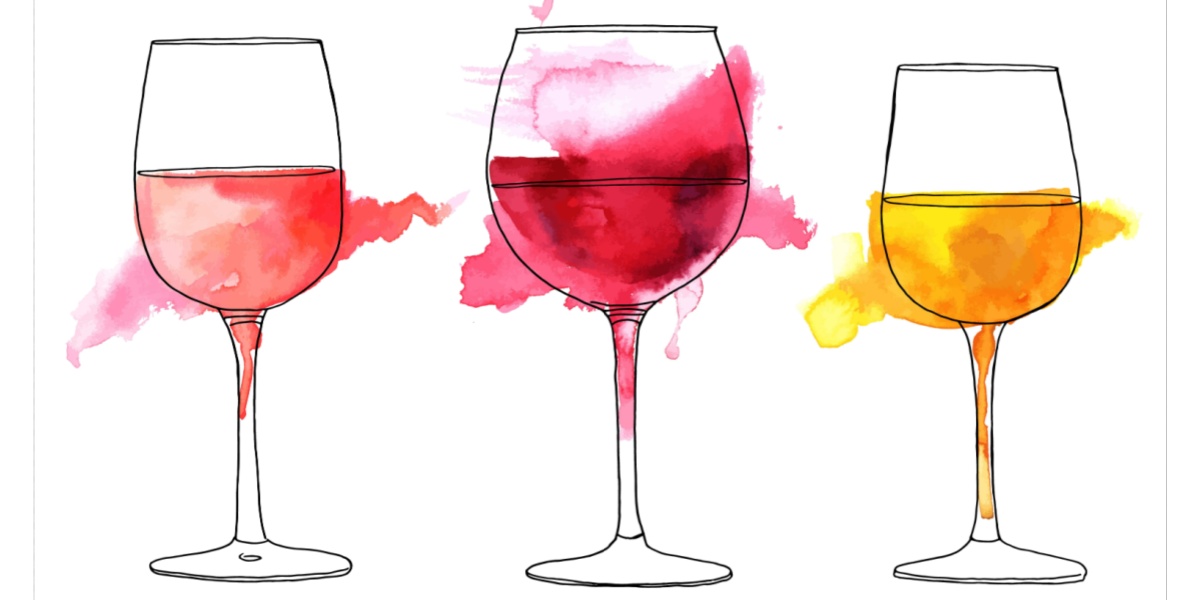As alcohol is sold legally throughout most of the world and consumed widely in social situations, identifying the signs of addiction can be difficult.
- For many adult alcoholics, the first stages of alcohol abuse start in their teenage years, often through persistent binge drinking, resulting in a higher and higher tolerance to alcohol. However, it isn’t uncommon for adults to develop an alcohol use disorder (AUD) even if they have not previously had any problematic drinking habits
- While the damaging effects of alcohol abuse on your health are serious, the non-medical effects can be equally harmful. Depending on your financial situation, home life, relationship status, employment status, and mental state, these effects can appear early on with alcohol abuse or may not show themselves until the deeper stages of alcoholism
- Those who have developed a severe alcohol addiction from prolonged periods of drinking will have built a high dependence, meaning they may suffer severe withdrawal symptoms during detoxification

Signs of alcoholism
If alcohol consumption leads to situations that have a negative effect on the user's life, this is classed as alcohol abuse. What is classified as a negative effect varies and can come in different forms for different people. Common negative effects include;
- Hangovers
- Alcohol-related accidents
- Saying or doing things that hurt others or yourself
- Mood swings
- Impaired ability to work
- Depression or anxiety
If someone suffers from one or more of these adverse effects of alcohol abuse, it does not necessarily make them an alcoholic or alcohol dependent. However, as with any substance abuse, these can be the first signs of addiction.
For many adult alcoholics, the first stages of alcohol abuse start in their teenage years, often through persistent binge drinking, resulting in a higher and higher tolerance to alcohol. However, it isn’t uncommon for adults to develop an alcohol use disorder (AUD) even if they have not previously had any problematic drinking habits, even occurring in seniors.
If you believe yourself or someone you care about abuses alcohol, you should consider seeking help. If you are unsure if an AUD is present, you might want to watch out for regular or persistent signs of alcohol intoxication, such as;
- Slurred speech
- Bloodshot eyes
- Lack of coordination
- Struggling to walk or falling over
- Disorientation
- Rambling or repetitive statements
- Agitation or anxiety
- Glassy or blank stares
- Saying inappropriate things
- Making inappropriate sexual advances
The dangers of alcohol abuse
As drinking is so prevalent in Western society, the ramifications and dangers are not always immediately visible. Many of us have experienced hangovers in our lives or have faced a difficult day at work following a night of heavy drinking. While this is usually rare and easily overcome, those who abuse alcohol may find that they experience these negative effects more frequently. This can lead to serious health implications as well as damaging other aspects of life, and for some, it may lead to alcohol dependence or alcoholism.
Short-term damage of alcohol abuse
Even if you do not abuse alcohol regularly, you may still be damaging your health through the short-term effects of alcohol consumption. These side effects can include the following symptoms:
- Impaired judgment
- Headache
- Blackouts
- Nausea or vomiting
- Diarrhea
- Distorted vision
- Stomach pain
Long-term damaging effects of alcohol abuse
While these short-term side effects from alcohol abuse may not seem overly dangerous, they pose the joint threat of both causing long-term damage and leading to alcohol addiction. Persistent alcohol abuse affects all of the body's organs, from the brain to the bowel, as well as potentially causing psychological damage. Some of the long-term health impacts of alcohol abuse include:
- Mental health issues such as depression and anxiety
- Permanent brain damage
- Liver cirrhosis or liver failure
- Chronic pancreatitis
- High blood pressure and heart disease
- Psoriasis
- Neurological impairments such as nerve damage
- Hand tremors
- Hepatitis
- Sexual performance issues such as erectile dysfunction
- Malnutrition and vitamin deficiencies
- Gastritis (inflammation of the stomach)
- Accidental injuries, e.g., car accidents and falls
- Intentionally hurting oneself or others
- Cancer of the mouth and esophagus
- Physical abnormalities
- Death
Non-medical damaging effects of alcohol abuse
While the damaging effects of alcohol abuse on your health are serious, the non-medical effects can be equally harmful. Depending on your financial situation, home life, relationship status, employment status, and mental state, these effects can appear early on with alcohol abuse or may not show themselves until the deeper stages of alcoholism. Some of the non-medical damaging effects of alcohol abuse include:
- Legal issues, such as trouble with the authorities when intoxicated
- Craving alcohol
- Relationship issues with family, friends, and significant others
- Financial issues, including debt or failing to meet financial commitments
- Feeling guilt or shame about drinking or actions while under the influence
- Needing alcohol to relax or feel normal
- Alcohol dependency
- Issues at work such as prolonged absence, lateness, and decreased productivity
- Ignoring commitments in favor of drinking
- Drinking alone or to cure boredom
- Making excuses to drink at social events
- Avoiding social events where alcohol isn’t involved
- Lapses in memory
- Forgetting important events or commitments
- Loss of employment
Diagnosing an alcohol use disorder (DSM 5)
When diagnosing alcoholism, medical professionals use a spectrum of 11 criteria or symptoms to measure the severity, as outlined in The Diagnostic and Statistical Manual of Mental Disorders, Fifth Edition (DSM-5). The more of the criteria the alcohol abuser meets, the higher the level of alcoholism. The 11 criteria that measure alcoholism are as follows:
- Taking alcohol in larger amounts or drinking for longer than you intended to
- Wanting to cut down or stop using alcohol but not managing to
- Spending a lot of time obtaining, using, or recovering from the use of alcohol
- Cravings and urges to use alcohol
- Not managing to meet commitments at work, home, or school
- Continuing to use alcohol, even when it causes problems with family or friends
- Giving up important social, occupational, or recreational activities in favor of alcohol use
- Getting into dangerous situations while under the influence of alcohol, e.g., driving under the influence, using machinery, or having unsafe sex
- Continued alcohol consumption, even when you know it is making a physical or psychological problem worse
- Having to drink increasing amounts of alcohol to get the effect you want
- Development of alcohol withdrawal symptoms when not drinking
This spectrum helps diagnose whether an AUD is mild, moderate, or severe. Having two or three of the above criteria would be a mild AUD; four to five would be a moderate AUD, and six or more indicates a severe AUD.
Alcoholics generally have six or more of the above criteria.
Related: Functioning alcoholics
Though this spectrum offers a good measuring post to classify and diagnose alcoholism, it does not mean that it is always easy to spot when someone has a drinking problem. Moreover, as alcohol is so widely socially acceptable, these criteria may end up being masked by someone’s general lifestyle. For example, having drinks after work twice a week or drinking during sporting events may not signal an alcohol use disorder, but the level of alcohol consumed or the perceived need to drink at these events may be a sign of a larger issue as too is binge drinking.
Spotting and diagnosing an alcohol use disorder is most effectively achieved by measuring alcohol’s harmful effects on a person's life. About 6% of American adults (around 15 million people) have an alcohol abuse problem, yet just 7% of those receive treatment. There are many alcohol rehab and treatment centers in the country that can help if you or someone you care about is suffering from alcoholism.
Intervention for alcoholics
The prospect of helping someone you suspect has an alcohol use disorder can feel like a daunting task. They may think they don’t have an alcohol problem or say they want to sort it out independently, despite showing no signs of doing so. If this is the case, you may need to stage an intervention.
An intervention should always be directed from a place of concern and care and be without any accusations or blame. If the person with AUD feels they are being judged, they may be reluctant to engage with the intervention or acknowledge that they have a problem. You should try to highlight the emotional distress the person's drinking has caused you and others, as well as the concern you have for the person's well-being and health. It is best to discuss the agenda and direction of the intervention with those attending beforehand and consider seeking professional help from a mediator, support group, or addiction treatment center.
Withdrawal from alcohol, treatment and next steps
In order to begin the recovery journey from alcohol addiction, the body must first go through a process of detoxification. The detox period aims to remove all physical traces of alcohol from the body and allow time for the mental associations and habits around alcohol to reduce. Unfortunately, those who have developed a severe alcohol addiction from prolonged periods of drinking will have built a high dependence, meaning they may suffer severe withdrawal symptoms during detoxification. Depending on the level of alcoholism, these withdrawal symptoms can be extreme and occasionally fatal. Alcohol withdrawal can result in a condition called delirium tremens, which is characterized by rapid-onset confusion, shakes, and sweating. In some cases, it can lead to disturbances in the heart rate or rhythm, seizures, and a very high temperature.
Related: How long does alcohol stay in your system?
Therefore, it is imperative that you seek professional help when going through the detox process and continue to engage with healthcare professionals throughout your treatment and rehabilitation. Not only will this ensure that the process is safe, but people who undergo rehabilitation through professional support services are far less likely to relapse. Contact an alcohol treatment practitioner today to begin your recovery or get advice for a loved one.



-guide-detail.jpg?v=1722502795)
-(1)-guide-detail.jpg?v=1722502962)